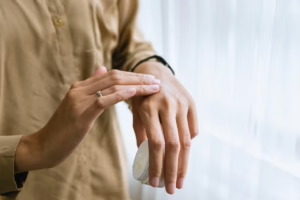Clear Skin Secrets: Top Hacks for Flawless Complexions
Having clear skin is often regarded as a hallmark of health and beauty. Many people dream of a flawless complexion, and while perfection may be unattainable, there are plenty of strategies that can help improve skin clarity and overall appearance. This article delves into practical tips, tricks, and hacks to achieve that radiant glow and maintain a healthy skincare routine.
Understanding Your Skin Type
Before diving into skin-clearing hacks, it’s crucial to understand that not all skin is created equal. Different skin types—oily, dry, combination, and sensitive—require tailored approaches. Here’s a brief overview:
- Oily Skin: Characterized by excessive sebum production, which can lead to clogged pores and breakouts.
- Dry Skin: Lacking hydration and often appearing dull; may lead to flakiness and irritation.
- Combination Skin: Features both oily and dry areas and requires a balanced approach.
- Sensitive Skin: Prone to reactions and irritations; needs gentle products free of harsh chemicals.
To establish an effective skincare routine, start by identifying your skin type. This foundation will help you select the appropriate products and treatments.
The Basics of a Good Skincare Routine
A consistent skincare routine can be your best ally in achieving clear skin. Here’s a streamlined regimen that covers daily and weekly essentials:
Daily Skincare Routine
-
Cleansing: Choose a gentle cleanser suited for your skin type. For oily skin, look for gel-based cleansers, while creamy cleansers work well for dry skin.
-
Toning: Toners can help balance your skin’s pH and prepare it for the next steps. Use alcohol-free toners to avoid drying out the skin.
-
Moisturizing: Hydration is key, regardless of skin type. Oily skin can benefit from lightweight, oil-free moisturizers, while dry skin may need richer creams.
-
Sun Protection: Apply a broad-spectrum sunscreen with at least SPF 30 every day, regardless of the weather. UV rays can damage skin and accelerate aging.
Weekly Skincare Additions
-
Exfoliation: Consider exfoliating 1-3 times a week to remove dead skin cells. Use a gentle physical scrub or a chemical exfoliant containing alpha-hydroxy or beta-hydroxy acids.
-
Masks: Incorporating face masks can provide additional benefits. Look for hydrating masks for dry skin and clay masks for oily skin.
-
Serums: Applying serums tailored for issues like acne, hyperpigmentation, or fine lines can offer targeted treatment.
Hydration and Diet
Stay Hydrated: Drinking water is essential for maintaining skin elasticity and moisture. Aim for at least eight 8-ounce glasses of water daily.
Nutrition: A balanced diet rich in fruits, vegetables, and healthy fats supports skin health. Include foods high in antioxidants, such as berries, nuts, and leafy greens. Omega-3 fatty acids found in fish can also help reduce inflammation.
Common Skin Issues and Solutions
Acne
Acne is one of the most common skin concerns, affecting people of all ages. Here are some effective strategies to manage it:
-
Spot Treatments: Ingredients like benzoyl peroxide or salicylic acid can help reduce acne when applied directly to blemishes.
-
Non-Comedogenic Products: Use makeup and skincare labeled “non-comedogenic” to avoid clogging pores.
-
Avoid Picking: As tempting as it might be, resist the urge to pick at acne, as this can lead to scarring and further irritation.
Hyperpigmentation
Dark spots or uneven skin tone can be addressed with:
-
Vitamin C: This potent antioxidant brightens the skin and can help reduce hyperpigmentation when used consistently.
-
Retinoids: These work to increase cell turnover and fade dark spots over time.
-
Chemical Peels: Professional peels can effectively target pigmentation issues.
Dryness & Dullness
To combat dry skin and restore radiance:
-
Hydrating Ingredients: Look for hyaluronic acid and glycerin in your products to retain moisture.
-
Facial Oils: Incorporate facial oils into your routine for added nourishment. Essential oils like rosehip or jojoba oil can be beneficial.
-
Humidifiers: Using a humidifier, especially in winter, can add moisture to the air and prevent skin drying out.
Lifestyle Factors
Sleep
Getting enough sleep is not just vital for overall health; it significantly impacts your skin. Aim for 7-9 hours of quality sleep each night. During sleep, the body repairs itself, and lack of rest can lead to dull skin, dark circles, and increased stress levels, which may contribute to acne.
Stress Management
Chronic stress can wreak havoc on your skin, leading to conditions like acne, eczema, and rosacea. Implement stress-reducing activities such as yoga, meditation, or simply spending time outdoors. Mindfulness practices can also have remarkable effects on both mental health and skin appearance.
Exercise
Regular physical activity boosts circulation and promotes healthy skin by supplying nutrients and oxygen to skin cells while flushing out toxins through sweat. Make it a point to incorporate at least 30 minutes of moderate exercise into your daily routine.
Best Skincare Ingredients to Look For
Antioxidants
Antioxidants like Vitamin C, E, and green tea extract help protect the skin from damage caused by free radicals, which can accelerate aging and skin conditions.
Hyaluronic Acid
This powerhouse ingredient effectively hydrates the skin by holding moisture, making it ideal for dry or dehydrated skin.
Retinol
Retinol is a form of Vitamin A that accelerates skin cell turnover, promotes collagen production, and can effectively treat fine lines, wrinkles, and acne.
Niacinamide
Niacinamide (Vitamin B3) helps to improve skin elasticity, enhance the barrier function, and even skin tone, making it a great addition for anyone concerned with uneven skin.
Special Treatments
Professional Facials
Regular facials tailored to your skin needs can provide deep cleansing and nourishment that typical home routines may not achieve. Look for facials that use quality ingredients and avoid harsh treatments that may aggravate your skin.
Chemical Peels and Microdermabrasion
These professional treatments can effectively address specific skin concerns like hyperpigmentation, acne, and scarring. However, they should always be conducted by certified professionals.
Microneedling
This treatment promotes collagen production and is particularly effective for minimizing the appearance of scars and fine lines. Microneedling creates tiny punctures in the skin to stimulate healing, leading to smoother skin over time.
Skincare Technology
LED Light Therapy
This innovative treatment uses varying wavelengths of light to target different skin issues. Blue light can combat acne, while red light promotes healing and reduces inflammation.
Skin Analyzers
Modern dermatology uses high-tech skin analyzers that assess your skin’s condition and provide personalized skincare recommendations based on real-time data.
Home Remedies
While scientific-backed products and treatments are crucial, some people find success using natural remedies. However, always do a patch test first as natural does not always mean safe.
-
Honey: Known for its antimicrobial properties, honey can be used as a mask for acne-prone skin.
-
Aloe Vera: This plant has soothing properties and can help with hydration and inflammation, making it excellent for irritated skin.
-
Green Tea: Used as a toner, cooled green tea can reduce oiliness and calm inflamed skin.
Final Thoughts
Achieving clear skin is a journey that requires patience, consistency, and tailoring your skincare routine to suit your individual needs. Understanding the underlying causes of your skin issues and addressing them holistically—from skincare products to lifestyle changes—will provide the best results. Remember that clear skin is not merely a product of good genetics; it involves knowledge, effort, and a bit of trial and error.
By implementing these hacks and strategies, anyone can move toward healthier, more radiant skin. Whether you choose to enhance your diet, invest in quality skincare products, or consult professionals, the path to clearer skin is within reach.
References
To ensure your understanding of modern practices informed by experts, be sure to consult dermatological literature and skin health studies, such as those found in journals like the Journal of Investigative Dermatology and reviews from the American Academy of Dermatology. Additionally, reputable skincare brands often provide educational resources on their websites for informed choices about products.
By combining knowledge, care, and discipline, you can unlock the secrets to clear, beautiful skin tailored specifically for you.
This article provides a comprehensive overview of effective practices for achieving clear skin. While it includes numerous hacks and product recommendations, always consult with a healthcare provider or dermatologist before starting new treatments, especially if you have specific concerns or conditions.


























Add Comment